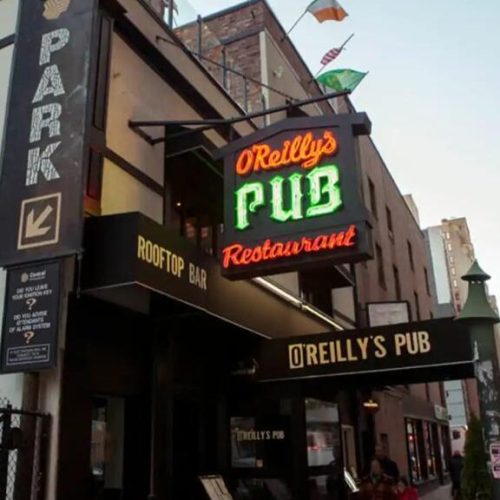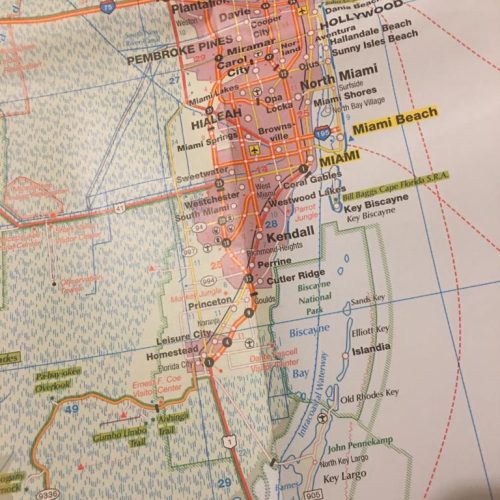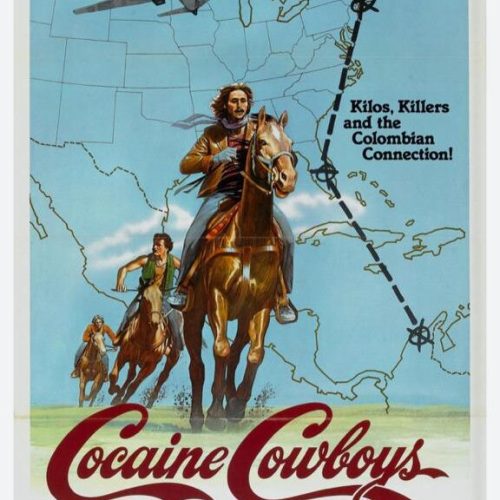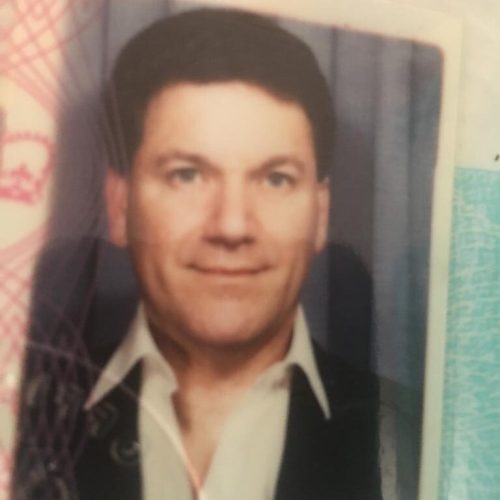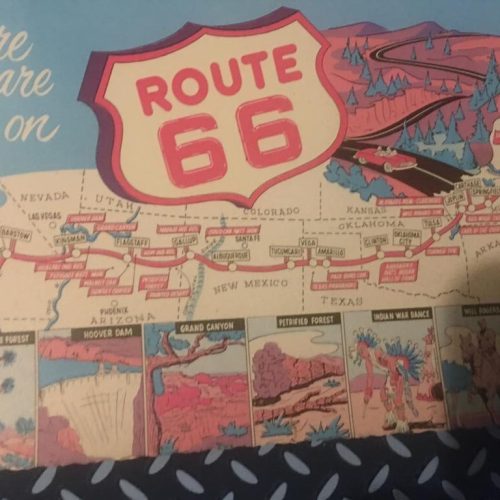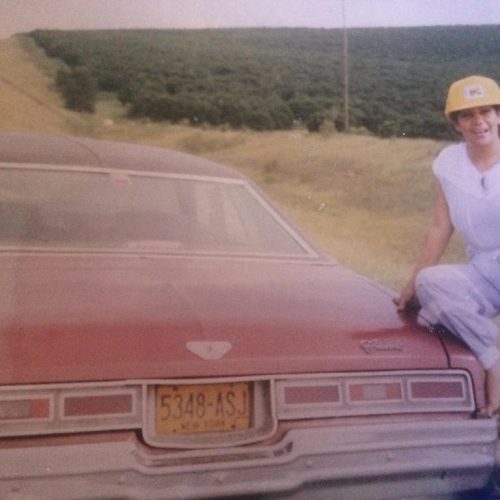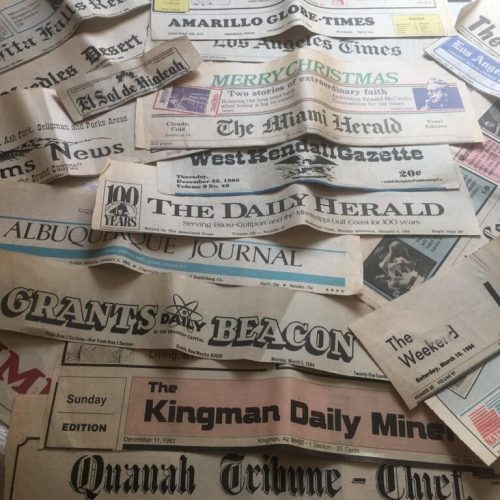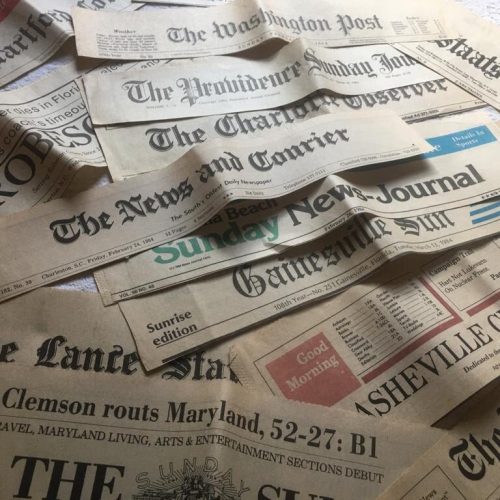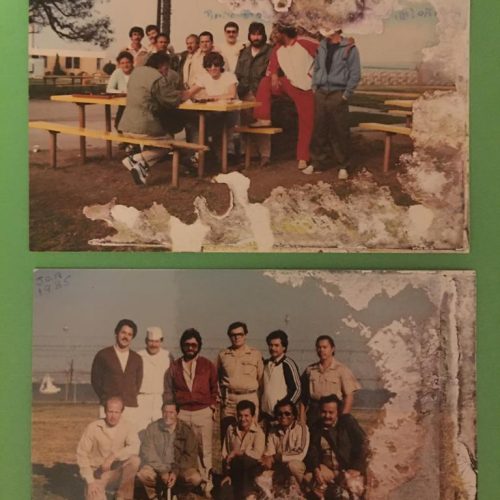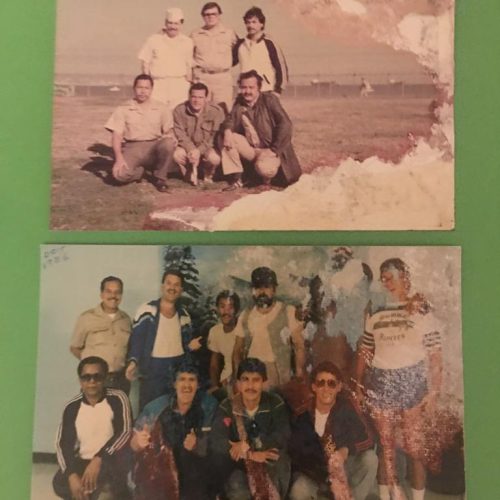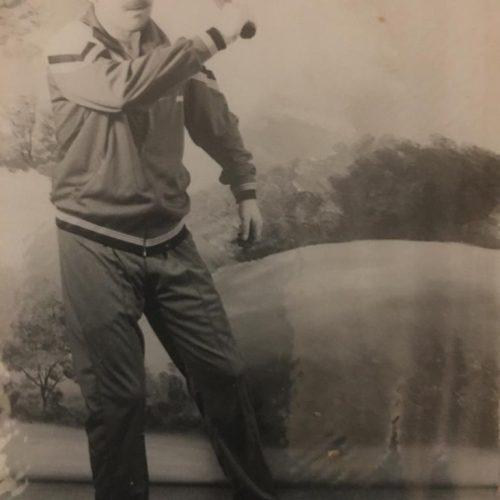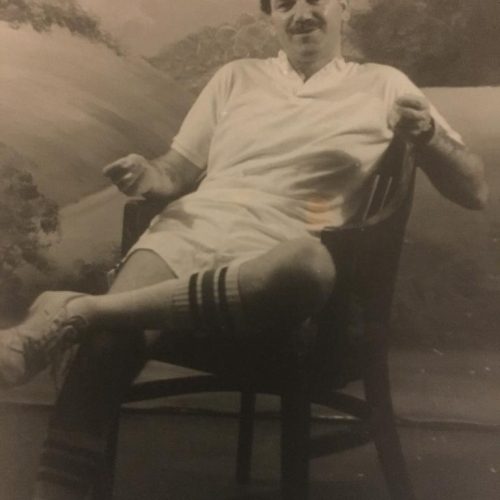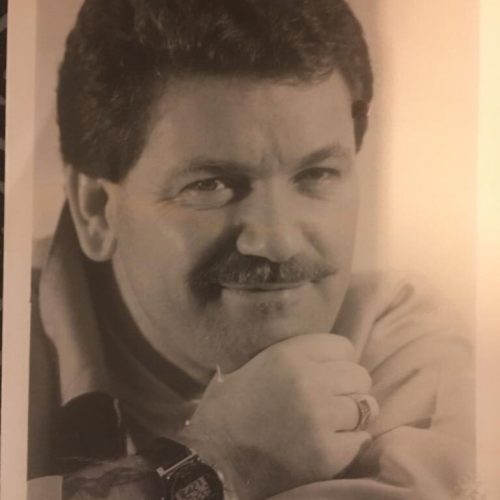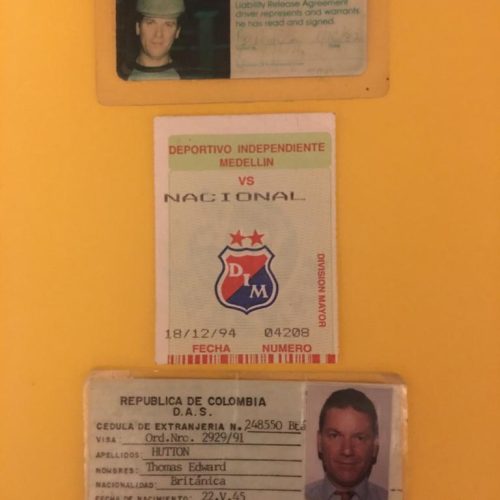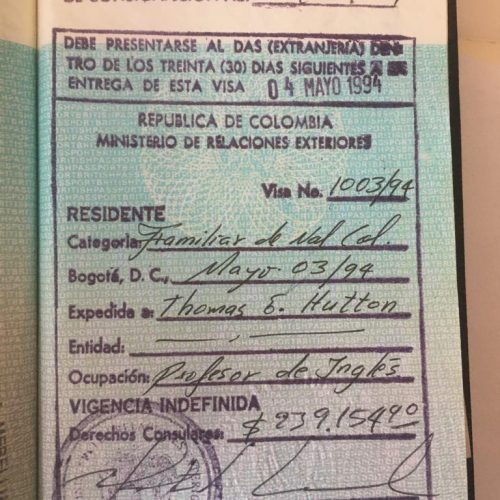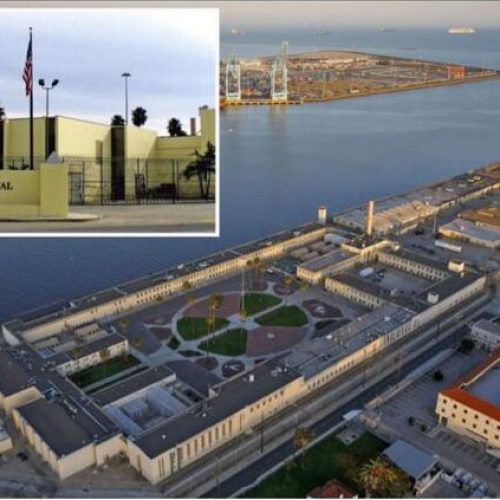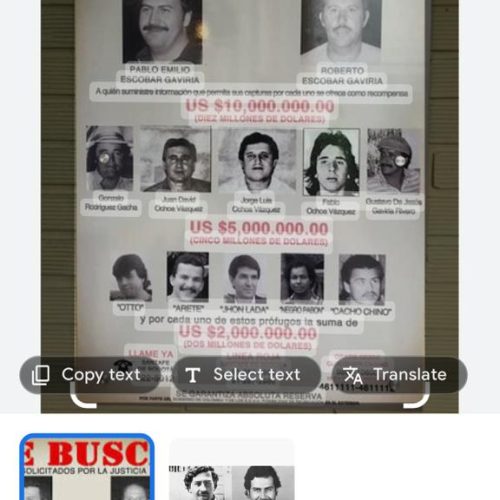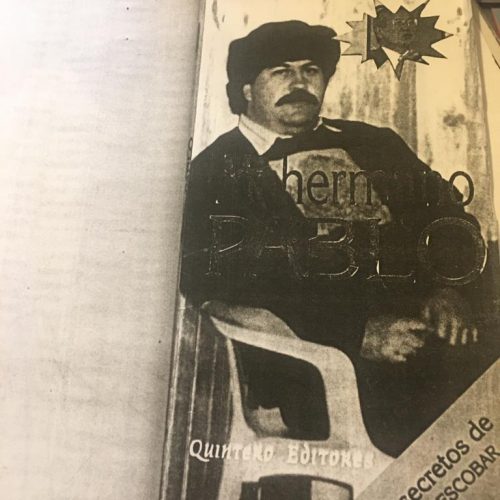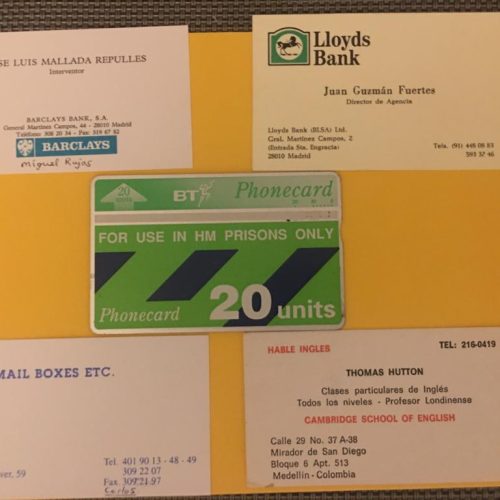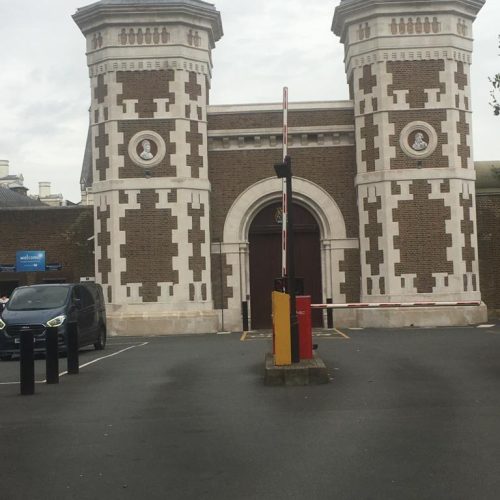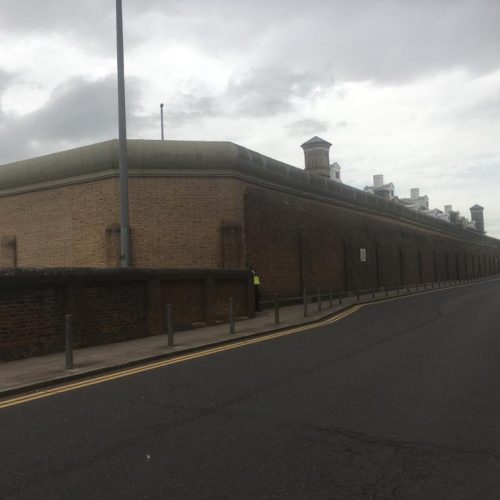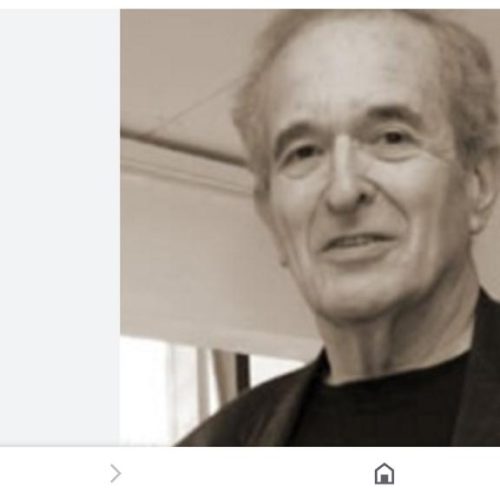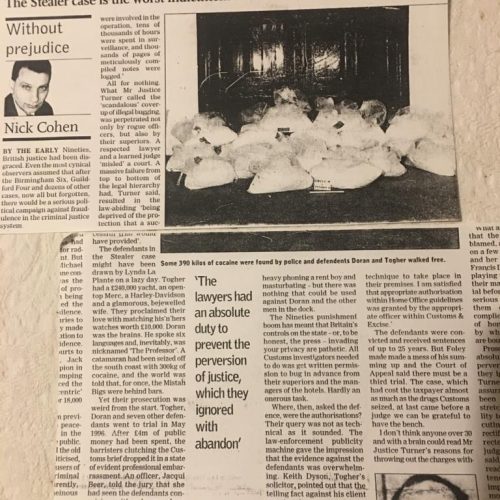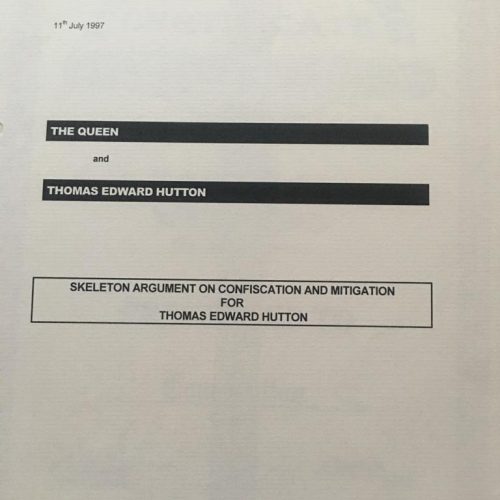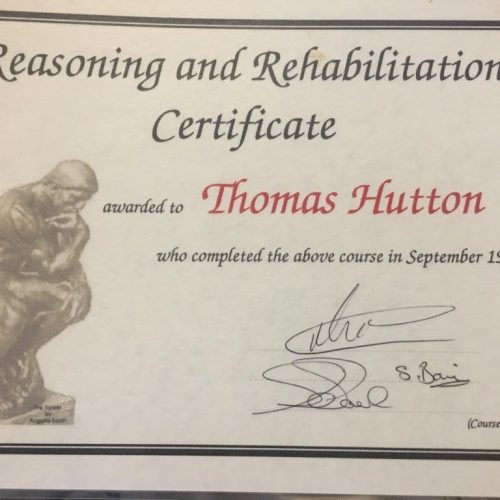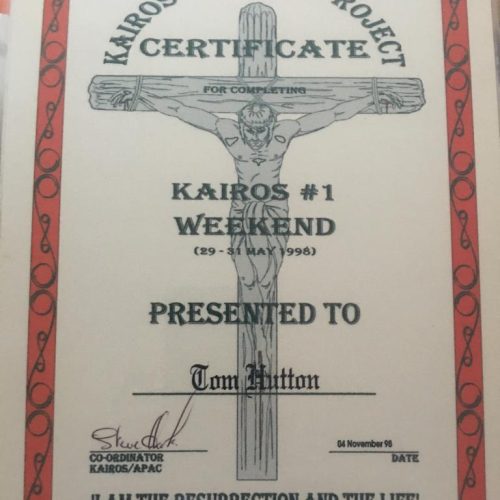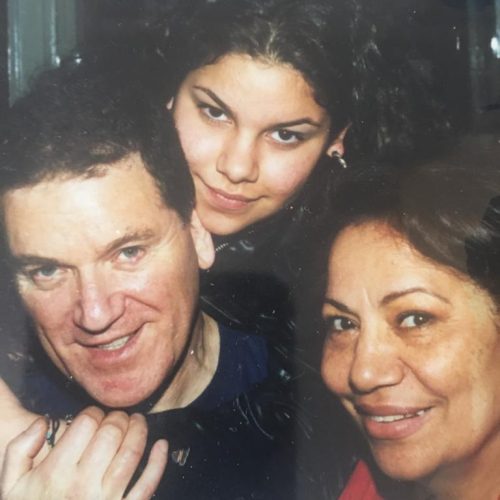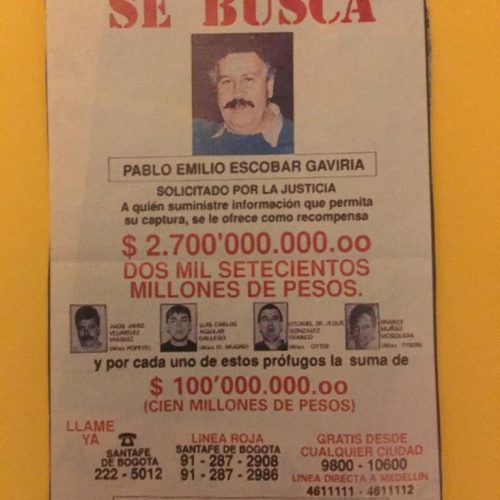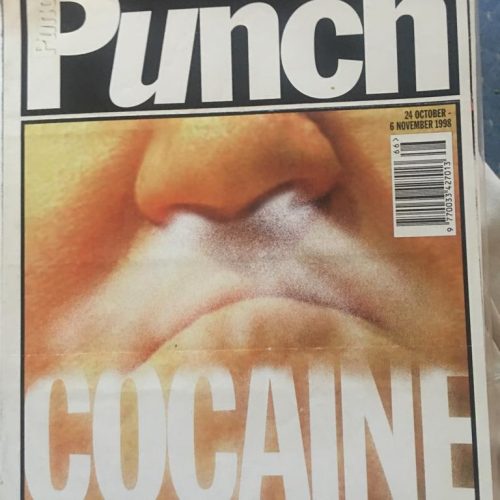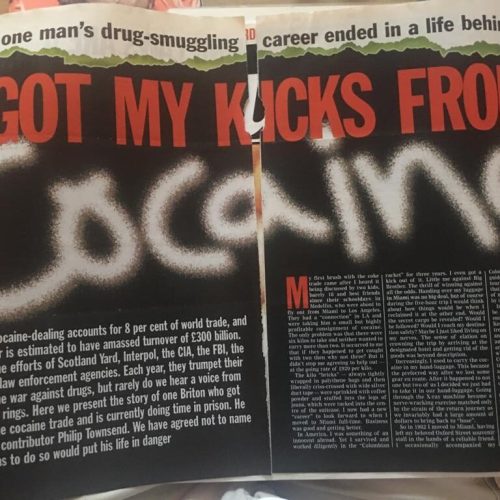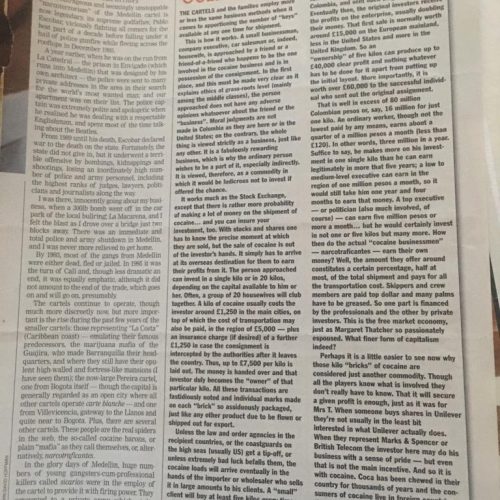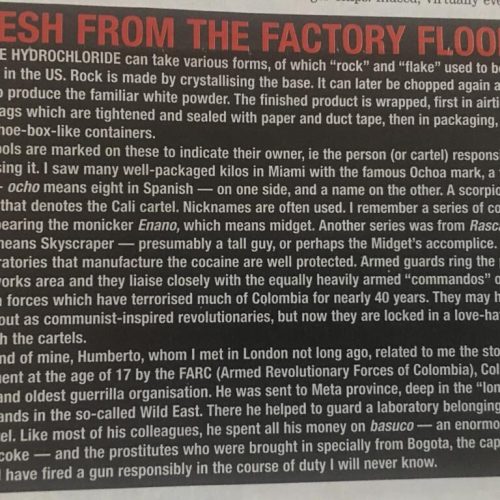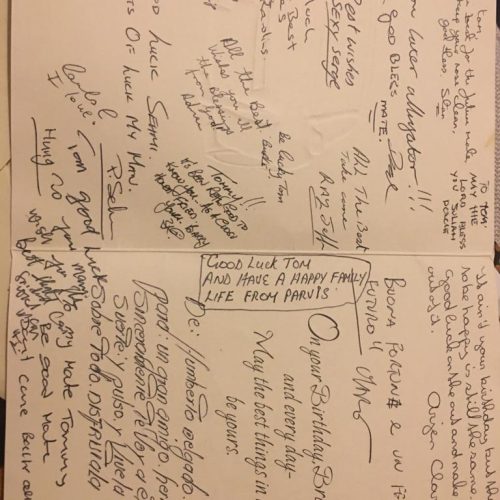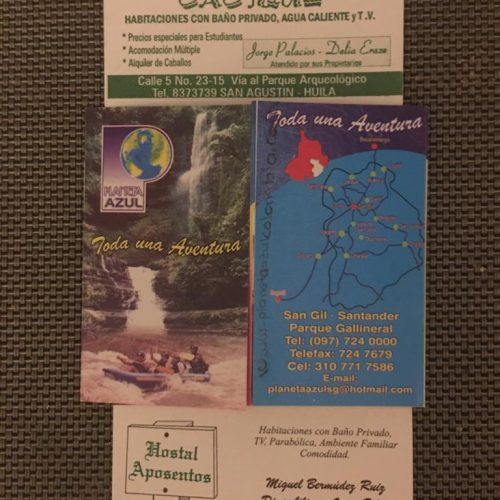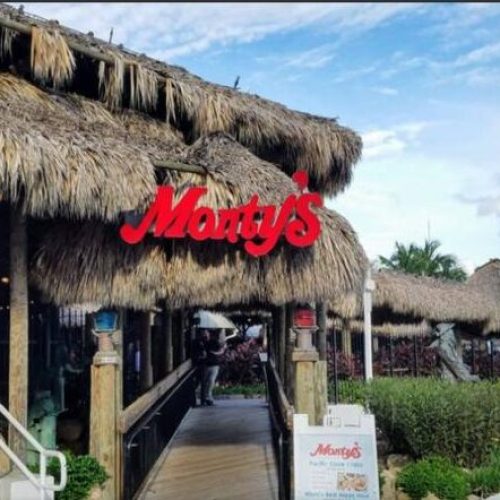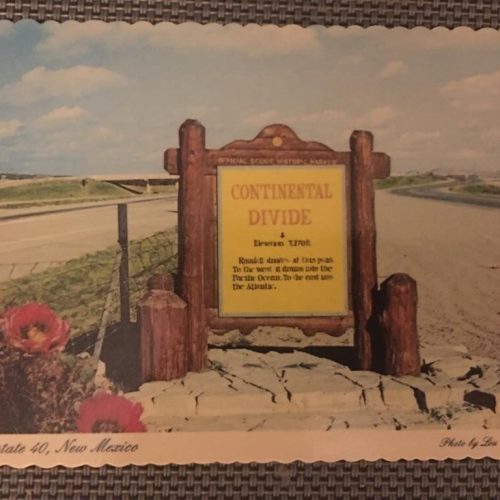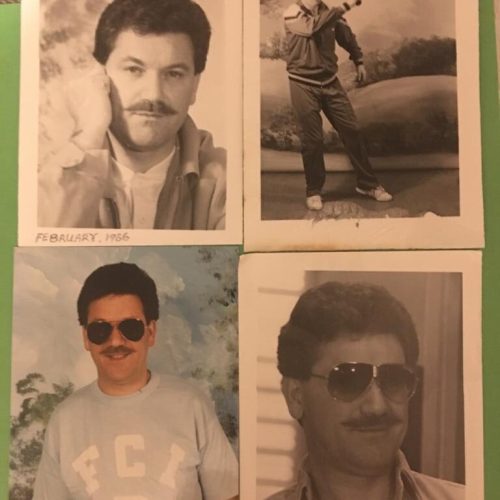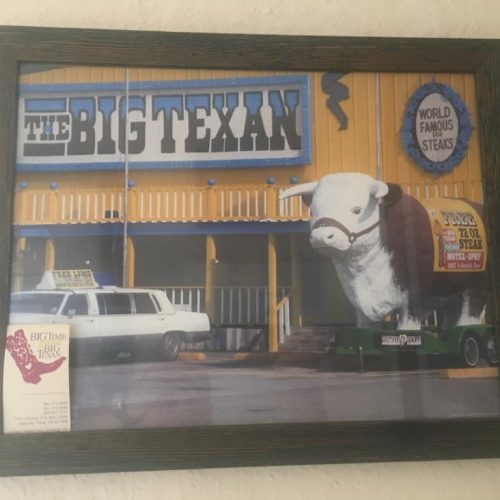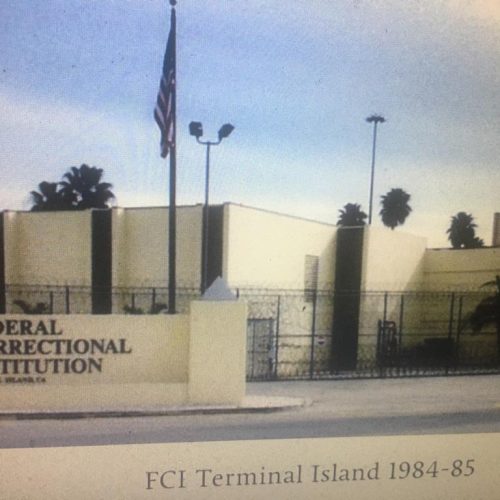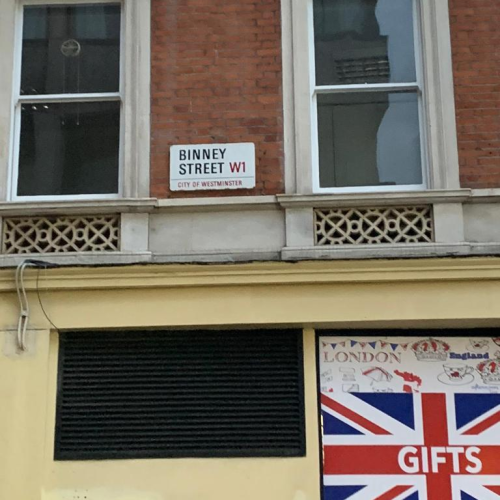Synopsis
Synopsis for 'Tales of an English Contrabandista'
“Tales of an English Contrabandista” begins with a bang. The first chapter of Part One is literally titled 1981: In the Beginning. And what a beginning. Welcome to Miami in the very year the Medellin Cartel was declared “officially”. It also happened to be the year the author himself arrived in Miami to be with his new, Colombian wife, whom he married in the January. Due to circumstances he found himself gradually enmeshed in the newly expanding cocaine trade … which was centred in that same city. This is well-described here, along with the Cartel’s background and how that drug business in both South America and its principal market, the US, was set up.
He continues Part One, which he calls “American Dream”, by backtracking on his own background from birth in a London only just emerging from World War Two, describing his growing up and earliest adult experiences, up to the most consequential turning point in his life, 1977, when he and his (second) wife first met. Four sentimentally laden years later our Mr Hutton finds himself in that very special place nicknamed “Magic City” After flying the merchandise, he drives it from Miami – where his subsequent life adventures seem to be turbo-charged from the start! In both chronological and regional order, he tells us of his escapades throughout the United States, mainly his drug-running activities during which his brother accompanied him as assistant driver. he drives from coast to coast, describing a different kind of wolf’s lair first in Los Angeles and then in the then-dilapidated New York – and beyond. He rounds off all of this with an in-depth look at Miami itself during its most notorious era, the early to mid-1980s including a thrilling twelve-hour sea voyage. Then comes his inevitable fall from grace, as he details it, in May 1984.
Part Two is aptly named “The System” – with reference to the fabled Federal System. This deals exclusively with Mr Hutton’s three and a half years detained by the Feds, first in Miami followed by Los Angeles and finally in Kentucky. Eventually came his expulsion, effected in a deportation centre in Louisiana – when he was formally labelled persona non grata in its court. So from federal prisons our intrepid Englishman finds himself on home soil once again from September 1st 1987. For almost six years he kept his nose clean, with not the least connection with the drug business. His situation in England – in Cambridge now, where his wife Maryann chose to settle rather than London – began pretty well, but then began to unravel for a variety of reasons. One was the fact he had returned a full-blown “military type” barking orders to everyone, quite obviously influenced by that institutionalising “System” he had been subject to in the US. Then there was the unstable nature of the taxi business he founded, and finally the growing insecurities of Maryann herself.
He calls this period of his life the “Interlude” in the book, though focusing more on what happened next – after his three years in England coming apart completely – which happened to be in Maryann’s country, Colombia, with which Tom had fallen in love back in the late 70s. He describes here the circumstances that led him back there at the end of 1990, and the renewal of the marriage shortly after, with plans mutually agreed to start again in the nation’s second city, Medellin. Which also happened to be the spider’s web itself referring to the worldwide cocaine trade – though during his years there Tom had nothing whatsoever to do with it. This section’s subtitle, “Profe” explains in a single word why he relied on something else entirely, something new, wholesome and potentially very rewarding personally – as well as financially. Quite unlike his previous years in Cambridge, this new life in Medellin proved most productive indeed. The couple worked very well as a team … until the time came, very unfortunately when her insecurity once again got the better of Maryann – and they split. But Tom, enjoying life immensely in “his tropical paradise”, refused to throw in the towel and found his own apartment to continue with his English classes, an enterprise which just grew and grew. The couple remained close yet apart.
But work took over his life so much that he ended up burned out, quemado as they said in Spanish. This led to unforeseen but momentous circumstances which determined the next few years, right up till the end of the century. While all this was unfolding the general environment around the couple was anything but stable. Tom’s own life may have been blissful (mostly), his “happiness levels” actually at their peak, but life in the great city – and indeed throughout Colombia – was anything but. It was in the midst of its most challenging time ever – both the city of Medellin and the nation at large. The cocaine cartels’ domination had become supreme, the government was on the back foot for a number of years, state corruption was rife – the cocaine millions were a more feasible option for anyone than a Cartel bullet after all. There was of course a kingpin – in place from 1981 – Pablo Emilio Escobar, and his word was law. “Plata o plomo” was how it summed it up so succinctly. This situation spiralled out of control, resulting in a real war between his Cartel and the Colombian state, from 1989 to 93, and there they were, Mr and Mrs Hutton and family, living in its very epicentre – and literally living to tell the tale. Bombings all over the city was an almost-daily occurrence, Escobar and his cohorts ran rings around the authorities, the city ended up under martial law.
The circumstances around our author’s change of direction came about from the arrival of an old colleague from US days, also deported, and the plans he was making with a small, new but highly effective cartel based in Bogota, Colombia’s capital city. This is the basis for Part Three, a mirror-image of Part One, but centred in Europe rather than the US and called “European Odyssey.” His old friend’s scheme was no less than to play a part in the Colombian takeover of Europe just as it had done during the previous decade in the USA. As always the name of the only game in town was cocaine. Mr Hutton was first based in Germany – where he endured many months of boredom, sudden action (catastrophic) and much reflection. The action then switched to Spain – for two “seasons” running – during which he became more entrenched than ever, becoming a kind of jack-of-all-trades as right hand man of his old colleague, now director of operations throughout Europe for his particular “Office”.
Part Three ends with a full-scale, record-breaking conspiracy in his own home-town, London, including his deep involvement with the flow of large quantities of money. Thus, his variety of roles played in this entire enterprise included that of coordinator in money laundering at its most basic level: the green stuff. Once again, inevitably, his star waned – and his second fall from grace occurred in December 1995. So we have, in Part Four – mirror-image of Part Two – his extensively-recorded time in English prisons. This began with London’s infamous Wormwood Scrubs followed by Winchester and then the bulk of his time “inside” on the Isle of Sheppey, Kent. This long section is called “The Island”. In Kent he finally learned the valuable lesson that he had eluded him in the US: of the futility and ruinous consequences of doing prison time for drug activities. This gradual but very effective process, lasting about two years, made such an impact on Mr Hutton that he even altered his entire philosophy on the subject, realising eventually just how devastating, cruel and anti-social the whole trade really was. Cocaine use itself, the end product, was at the core of this entire lesson. At the same time he first planned to put down all his colourful exploits on paper, beginning in fact with a pair of articles he wrote, while a guest of Her Majesty, for Punch magazine in 1998. He was inspired and greatly encouraged by one of his best friends inside, an individual once-famous back in the 1960s as “Photographer to the Stars”, Philip Townsend – who wrote full-time for Punch.
Once Tom got released, however, real-life needs got in the way of his writing plans and he found the project seemingly shelved. It was twenty years before he actually compiled his book (encouraged constantly by his older son Dean) – recording absolutely everything – which he has called Tales of an English Contrabandista. This ends with his Epilogue, which relates the most significant additions to his life from 1999, when he was released, until soon after realising this project of his … the principal objective of which is to awaken ordinary people to the dangers of drug dealing. Its very uniqueness is that he, himself, was merely an “innocent abroad” who became entangled in the monster that the international cocaine trade actually is. So, though a tale of constant adventures and derring-do, it is at heart a cautionary tale. And it is also a monumental but utterly unpredictable love story, a roller-coaster ride if ever there was one.
In this Epilogue he tells us mainly of his “career” in a local, east London taxicab office, plus his up and down personal life. This ended with a final reconciliation with Maryann after another (very long) separation, the two slowly coming together again from 2012, with the actual reconciliation in January 2015. She was living in Cambridge once again, with Tom in London, but sadly the situation was mainly influenced by the fact that Maryann was not well at all. For some time she had displayed symptoms of Alzheimers disease – eventually being properly diagnosed in 2020. Her three daughters, including their own who had been born in Miami, implored him to encourage her to move to Spain where Laura had lived since 2000. The same Laura had been, in fact, a kind of “guardian angel” for him since his capture in 1995. Maryann agreed, but for him to go as well. He agreed, with the proviso they would move between London and Valencia, in order to keep up with their family in England as well as preserve his apartment. And, indeed, to enjoy the obvious health benefits of life in the sunnier and more laid-back Spain. This kind of life suited both, and they have maintained it since 2016. It was then in 2018 Tom put pen to paper before opening up his laptop!
Principally, “Tales of an English Contrabandista” informs us of how NOT to get involved in such an obviously dangerous occupation as the cocaine business. If you don’t end up in a tiny prison cell for years then you’ll be six feet under. An individual has three choices in other words: jail time, a horrible death – or simply to stay well away from it. Very few people get away scot-free, and they are inevitably Colombian bosses who stay at home and don’t get their hands dirty. Their profits are largely ensured thanks to the donkey work done by individuals such as our author. So his enthralling narrative tells the story principally from the viewpoint of a mere “soldier” in the business – thus making it unique as nearly every other book or film is from the point of view of the corresponding bigshots. Tom Hutton’s very ordinariness is the key in this particular book; it actually makes it more appealing as it is so intensely personal. This is due to his humility: he never forgets who he is, and above all how it feels to be a cog – albeit an important one – in a massive wheel. An awfully destructive one.
Therein lies the sincerity of this unique book. Enjoy!

